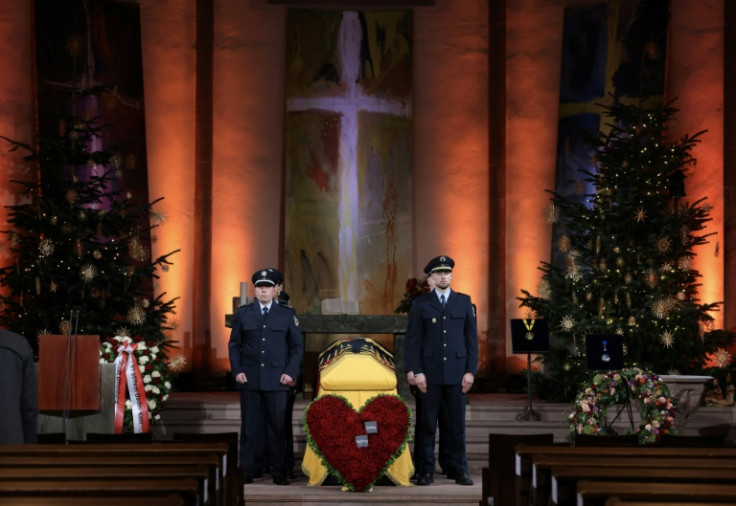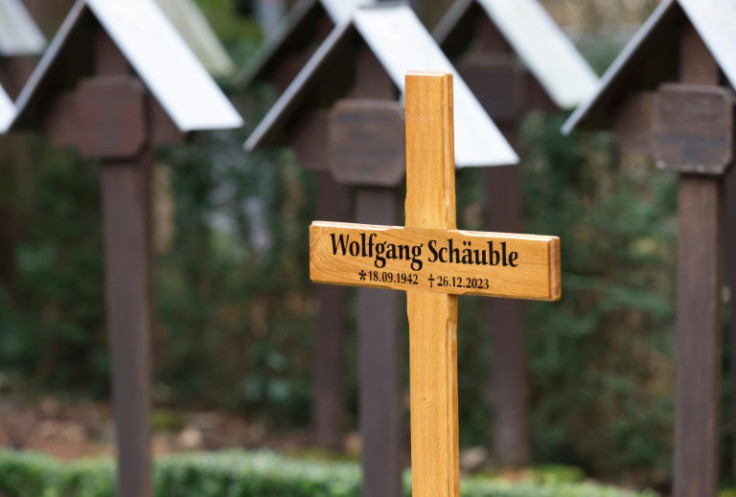
Wolfgang Schaeuble, a leading figure in German politics for decades and an icon of budgetary rigour in the eurozone, was laid to rest Friday after dying at the age of 81.
He was a minister under chancellors Helmut Kohl and Angela Merkel and played a key role in German reunification in 1990.
Schaeuble died on December 26 after a long battle with illness.
The funeral service was held in a church in his home city of Offenburg in the southwestern state of Baden-Wuerttemberg.
During the ceremony, regional prime minister Winfried Kretschmann called Schaeuble a "passionate democrat" and "a convinced European".
Prominent members of Schaeuble's conservative Christian Democratic Union (CDU) party attended the service, including CDU leader Friedrich Merz, who in his eulogy described the late politician as a "role model" who "had written history".
Former chancellor Merkel did not attend but was to join a state tribute for Schaeuble in Berlin on January 22, her spokeswoman said.
As finance minister for eight years under Merkel, Schaeuble carved out a reputation as the guardian of German budgetary discipline, particularly during the Greek debt crisis.
Describing himself as "pitiless" in his management of Germany's public purse, he showed the same exactitude towards his euro partners, insisting on stringent conditions for any bailout contribution by Berlin.
His harsh stance made him unpopular with many Greeks in the aftermath of the financial crisis of 2007-2008 and the ensuing eurozone debt crisis.
Born in Freiburg in 1942, Schaeuble was the longest-serving member of the Bundestag, the lower house of parliament, where he had sat since 1972.
It was under former conservative leader Kohl that the pro-European Schaeuble forged his career, rising through the ranks to eventually become the chancellor's chief of staff.
Together they oversaw Germany's national reunification, before personal tragedy struck -- an assassination attempt by a deranged man in 1990 left him badly injured and forced him to use a wheelchair for the rest of his life.
After a slush-fund scandal shattered Kohl's reputation in the 1990s, Schaeuble spent a period in the political wilderness before making a comeback in the early 2000s.
Although Merkel refused to back him for the role of federal president, He became her interior minister in 2005 and finance minister in 2009.
Schaeuble subsequently served as president of the Bundestag from 2017 until 2021, and remained a member of parliament up until his death.
He is survived by his wife and their four children.








